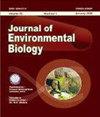绿色清洗对可持续行为的影响:绿色感知风险和绿色怀疑的中介
IF 0.7
Q4 ENVIRONMENTAL SCIENCES
引用次数: 0
摘要
目的:评估绿色清洗如何影响可持续行为。本研究还探讨了绿色感知风险和绿色怀疑论作为中介的作用,以及这些中介在绿色清洗和可持续行为之间的关系中如何依次相互影响。方法:由于人们现在在日常生活中完全依赖电子产品,因此,研究人员招募了从购物中心和其他电子商店购买环保电子产品的消费者。450名受试者通过“有目的的抽样”进行了选择。金奈、海得拉巴、班加罗尔和本地治里的印度消费者是这项研究的对象。答复是通过使用调查表获得的。为了验证研究假设,本研究使用了SPSS 25和AMOS 21。结果:结果表明,绿色洗涤与可持续行为之间的负相关是由绿色感知风险和绿色怀疑论介导的,这些介导因子依次影响绿色洗涤和可持续行为。解释:这项研究表明,企业应该在不使用“洗绿”的情况下将透明度融入绿色产品,这将增加消费者对绿色产品的信任,减少他们对绿色的感知风险和怀疑。如今的消费者已经意识到了洗绿现象,并开始对此进行调查。这项研究对保护环境和人类都至关重要。关键词:绿色感知风险、绿色怀疑论、绿色洗涤、可持续购买行为、透明度本文章由计算机程序翻译,如有差异,请以英文原文为准。
The influence of greenwashing on sustainable behaviour: The mediators of green perceived risk and green scepticism
Aim: To evaluate how greenwashing can affect sustainable behaviour. This study also explores the role of green perceived risk and green scepticism as mediators and how these mediators affect each other sequentially in the relationship between greenwashing and sustainable behaviour. Methodology: As people are now completely dependent on gadgets in their daily lives, therefore, the researcher solicited consumers who had purchased eco-friendly gadgets from shopping malls and other electronic stores 450 subjects were selected using "purposive sampling". Indian consumers in Chennai, Hyderabad, Bengaluru, and Pondicherry are the subjects of the study. Responses were obtained through the use of a questionnaire. To test the research hypotheses, the study used SPSS 25 and AMOS 21. Results: The results indicate that the negative correlation between green washing and sustainable behaviour was mediated by green perceived risk and green scepticism, and these mediators serially affected green washing and sustainable behaviour. Interpretation: This study suggests that firms should integrate transparency into green products without employing greenwash, which would increase consumer trust in green products and reduce green perceived risk and green scepticism among them. Consumers today are aware of greenwashing and have started to investigate it. This research is crucial to protect both the environment and mankind. Key words: Green perceived risk, Green scepticism, Greenwash, Sustainable buying behaviour, Transparency
求助全文
通过发布文献求助,成功后即可免费获取论文全文。
去求助
来源期刊

Journal of environmental biology
ENVIRONMENTAL SCIENCES-
CiteScore
1.70
自引率
0.00%
发文量
92
审稿时长
3 months
期刊介绍:
Information not localized
 求助内容:
求助内容: 应助结果提醒方式:
应助结果提醒方式:


